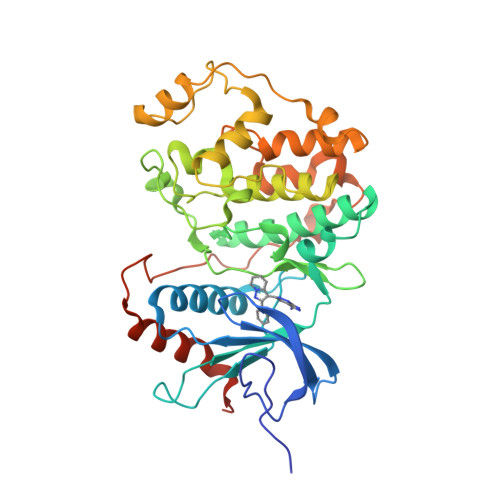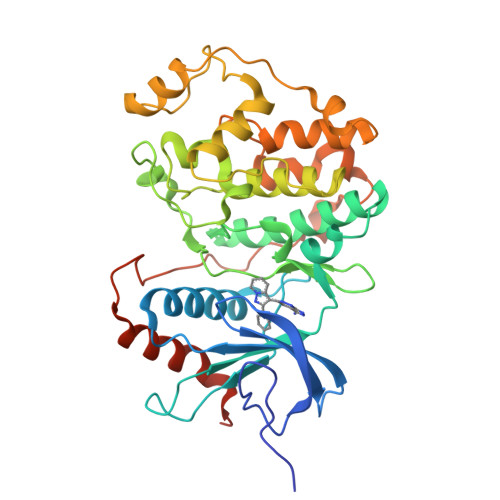Identification of a selective ERK inhibitor and structural determination of the inhibitor-ERK2 complex
Ohori, M., Kinoshita, T., Okubo, M., Sato, K., Yamazaki, A., Arakawa, H., Nishimura, S., Inamura, N., Nakajima, H., Neya, M., Miyake, H., Fujii, T.(2005) Biochem Biophys Res Commun 336: 357-363
- PubMed: 16139248
- DOI: https://doi.org/10.1016/j.bbrc.2005.08.082
- Primary Citation of Related Structures:
1TVO - PubMed Abstract:
Selective inhibition of extracellular signal-regulated kinase (ERK) represents a potential approach for the treatment of cancer and other diseases; however, no selective inhibitors are currently available. Here, we describe an ERK-selective inhibitor, FR180204, and determine the structural basis of its selectivity. FR180204 inhibited the kinase activity of ERK1 and ERK2, with K(i) values 0.31 and 0.14microM, respectively. Lineweaver-Burk analysis of the binding interaction revealed that FR180204 acted as competitive inhibitor of ATP. In mink lung epithelial Mv1Lu cells, FR180204 inhibited TGFbeta-induced luciferase-expression. X-ray crystal structure analysis of the human ERK2/FR180204 complex revealed that Q105, D106, L156, and C166, which form the ATP-binding pocket on ERK, play important roles in the drug/protein interaction. These results suggest that FR180204 is an ERK-selective and cell-permeable inhibitor, and could be useful for elucidating the roles of ERK as well as for drug development.
Organizational Affiliation:
Lead Discovery Research Laboratories, Astellas Pharma Inc., Miyukigaoka 21, Tsukuba, Ibaraki 305-8585, Japan. makoto.ohori@jp.astellas.com

















